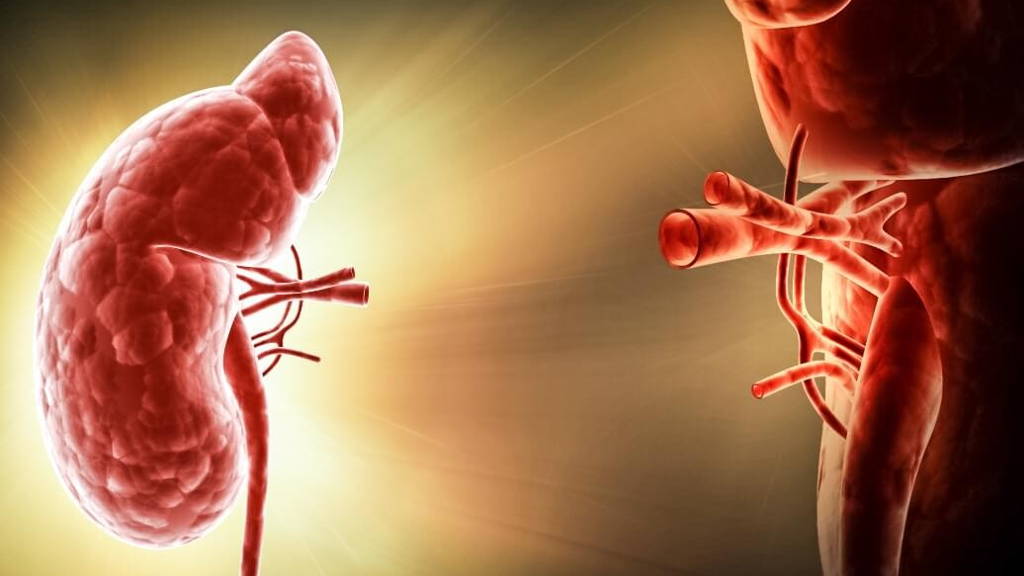The unique invention, which builds on a research line that was started as early as in 1982 by VitaK’s CSO, Associate Professor Dr. Cees Vermeer, was initiated with the discovery of vitamin K-dependent enzyme systems in the kidney. The complete research has been laid down in 32 papers in the international scientific literature. From these studies it turned out that low vitamin K intake and poor blood vitamin K status have a negative effect on kidney function.
In collaboration with Groningen University it was discovered that this also holds true for the function of the transplanted kidney and for survival of the kidney transplant recipient. TransCare is capable of quickly and accurately measuring the PIVKA and thus of monitoring the patient’s vitamin K status; it also visualizes how by increased dietary vitamin K intake the PIVKA (and hence the risk factor) is decreased or even annihilated.
“Worldwide about 80.000 kidney transplantations are carried out each year, but at the same time also 46.000 kidney transplant recipients die from allograft failure or other complications (source: GODT). With this invention we expect to significantly improve the life expectancy of these patients, and to assist healthcare professionals in their attempts to improve the quality of healthcare and to decrease the costs thereof. TransCare is an easy to handle IVD system that provides transplant kidney recipients the possibility to monitor and decrease an important risk factor for donor organ rejection together with their physician”, says Drs. Mehrdad Omidvar, CEO of VitaK Innovation in Life Science.
TransCare, which is protected by two international patent applications, forms part of the VitaK IVD Care program and is based on extensive applied scientific research. With this research the scientists in VitaK aim to bring their knowledge as close as possible to the patients. VitaK Innovation in Life Science has announced its intention to bring this innovative technology to the European market early 2017 and in the middle of the year 2017 – in collaboration with the renowned businessman/investor from the United Arab Emirates His Excellency Mr. Hussain Al Mahmoudi – it will also be introduced in the Middle East.
“Our studies have demonstrated that both the risk of allograft rejection and the life expectancy of the kidney transplant recipient depend on the vitamin K status of the patient. Patients with a relatively poor vitamin K status had a three-fold higher 10-year mortality risk than those with an adequate vitamin K status (45% vs. 15%). The TransCare system provides the possibility of risk reduction by relatively small adaptations in the diet, and to monitor the result thereof on a weekly basis”, says the inventor of this new technology, Associate Professor Dr. Cees Vermeer.
In collaboration with Groningen University it was discovered that this also holds true for the function of the transplanted kidney and for survival of the kidney transplant recipient. TransCare is capable of quickly and accurately measuring the PIVKA and thus of monitoring the patient’s vitamin K status; it also visualizes how by increased dietary vitamin K intake the PIVKA (and hence the risk factor) is decreased or even annihilated.
“Worldwide about 80.000 kidney transplantations are carried out each year, but at the same time also 46.000 kidney transplant recipients die from allograft failure or other complications (source: GODT). With this invention we expect to significantly improve the life expectancy of these patients, and to assist healthcare professionals in their attempts to improve the quality of healthcare and to decrease the costs thereof. TransCare is an easy to handle IVD system that provides transplant kidney recipients the possibility to monitor and decrease an important risk factor for donor organ rejection together with their physician”, says Drs. Mehrdad Omidvar, CEO of VitaK Innovation in Life Science.
TransCare, which is protected by two international patent applications, forms part of the VitaK IVD Care program and is based on extensive applied scientific research. With this research the scientists in VitaK aim to bring their knowledge as close as possible to the patients. VitaK Innovation in Life Science has announced its intention to bring this innovative technology to the European market early 2017 and in the middle of the year 2017 – in collaboration with the renowned businessman/investor from the United Arab Emirates His Excellency Mr. Hussain Al Mahmoudi – it will also be introduced in the Middle East.
“Our studies have demonstrated that both the risk of allograft rejection and the life expectancy of the kidney transplant recipient depend on the vitamin K status of the patient. Patients with a relatively poor vitamin K status had a three-fold higher 10-year mortality risk than those with an adequate vitamin K status (45% vs. 15%). The TransCare system provides the possibility of risk reduction by relatively small adaptations in the diet, and to monitor the result thereof on a weekly basis”, says the inventor of this new technology, Associate Professor Dr. Cees Vermeer.






